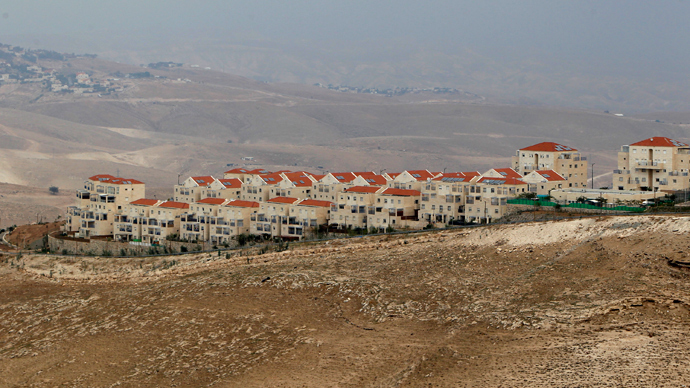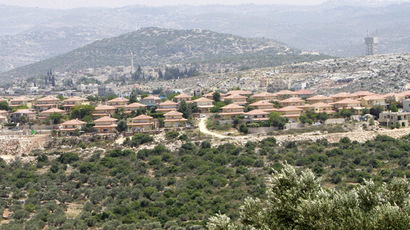12 more EU states warn businesses against dealing with Israeli settlements

Amid growing Palestine-Israeli tensions, 12 more EU states have joined European heavyweights - such as the UK, Germany and France - in urging their nationals to refrain from doing business in Israeli settlements in the Occupied Palestinian Territory.
READ MORE Spain, Italy warn against investing in Israeli settlements
The group of those who issued warnings for their citizens on includes: Austria, Belgium, Croatia, Denmark, Finland, Greece, Ireland, Luxembourg, Malta, Portugal, Slovakia, and Slovenia.
The European nations stated that Israeli settlements in the West Bank, including East Jerusalem, Gaza and the Golan Heights are illegal and hamper a peaceful settlement in the Israeli-Palestinian conflict. Involvement in business activities in the area carries both financial and reputational risks for investors, they warned.
The European states also pointed out that the EU “will not recognize any changes to the pre-1967 borders, including with regard to Jerusalem, other than those agreed by the parties”.
According to Irish Ministry of Foreign Affairs: “Financial transactions, investments, purchases, procurements as well as other economic activities (including in services like tourism) in Israeli settlements or benefiting Israeli settlements, entail legal and economic risks stemming from the fact that the Israeli settlements, according to international law, are built on occupied land and are not recognised as a legitimate part of Israel's territory”.
“This may result in disputed titles to the land, water, mineral or other natural resources which might be the subject of purchase or investment,” the ministry said, adding that in case of disputes “it could be very difficult for Member States to ensure national protection of their interests”.

So far, 17 European countries have issued such advice to their citizens. Earlier this week, France, Italy, and Spain published their communiqués; Germany and the UK did so several months ago. Latvia is expected to join the group later this week, while Poland and Sweden are likely to do so in the near future, according to Haaretz.
At the same time, several other EU nations, including Cyprus, Lithuania, Estonia, Bulgaria, Romania, the Czech Republic and Hungary, have made it clear that they are not planning to warn on the matter, the Israeli paper wrote.
Israeli settlement policy has been among key stumbling blocks in the long-standing Israeli-Palestinian conflict. US Secretary of State John Kerry suggested that Israel’s approval to build over 700 new housing units in East Jerusalem - which the Palestinians want as the capital of their state – was among the reasons that led to the derailment of the April peace talks. The derailed negotiations were a result of Kerry’s eight-month effort to broker an Israeli-Palestinian peace accord.
The American diplomat said earlier that both sides had taken steps that were not helping the progress. But then, “when they were about to maybe get there, 700 settlement units were announced in Jerusalem, and poof, that was sort of the moment,” he said appearing before the Senate Foreign Relations Committee.
Despite increasing international criticism over the settlements in the occupied territories, on June 5, Israel announced its plans to build 1,500 more homes in the area.














